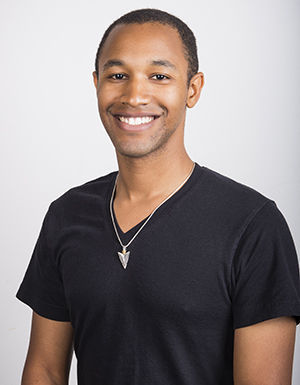Opinion: A different approach to ignorance can make a world of a difference

Bruce Walton is the opinions editor. Contact him at [email protected].
I have been writing about race, prejudice and racial insensitivity since I was a columnist in 2012. I have seen the racial climate in Kent State shift back and forth but it seems to have come to a boil in light of the recent events of police brutality and protests.
With this, we have seen many more reactions to students correcting or calling out their peers on moments of microaggressions. From my observations, it’s been a great stride that shows that the marginalized students of this university are beginning to be more vocal with the often overlooked comments or actions of students who take advantage of their racial or cultural privilege.
However, I’d like to tackle this subject because it has made for troubling racial tensions. What troubles me is the animosity we have toward our peers when they are culturally or racially insensitive, resulting in harsh tones and accusations where they are unwarranted.
Kent State houses students from diverse cultures, and we see those different societal norms show their true colors in these situations. I cannot see the positives of reacting in a way that ostracizes and vilifies a student for his or her ignorance.
Those students may have been raised by their peers in school or a household where race or diversity was not discussed or respected, or they have no idea how to interact. I understand that when ignorant and insensitive remarks are made, the knee-jerk reaction may be to attack that individual, but it’s not productive.
If your goal was to educate that individual on the boundaries and the consequences of their racially ignorant actions when they touch your hair or make a negative remark about your race, you did not achieve it.
If your goal was to antagonize and harass this person, you’ve done just that. This will also sow the seeds of distrust among students of different backgrounds from sharing experiences or reaching toward the other side for fear of social persecution, deepening the divide. Those are reactions for those who knowingly intend to create racism and hatred. That is when they deserve it.
Please understand, I do not want to protect those who are that ignorant from feeling as uncomfortable as we do. But we cannot accomplish peace or understanding by treating them with such disrespect and forced conflict. In order to move a conversation you must be patient so that they will not just understand the error of their demeanor, but also be willing to change and learn to be more culturally aware.
I would say that I would hate to call these microaggressions, as most of the time, the individual giving the microaggressions is completely unaware that they have been aggressive.
Race and culture is now a larger issue than it has been in decades, and I simply implore my marginalized student body to attempt to give a different approach to those who make sweeping statements or imitate and appropriate your race or culture. And if you are willing, make amends with those whom you have pushed away in an argument about race where they were confused and you were angry.
True peace and understanding comes from forgiveness and a willingness to admit your mistakes. There are greater battles you will have in the near future for justice in this world, and it would be better if you have as many allies on your side.
Contact Bruce Walton at [email protected].


